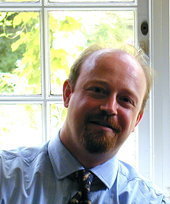 Everything Everywhere says its new 4G mobile internet network will reward Ofcom’s permissions by bringing vital connections to rural areas. But can it help the most vulnerable members of our society?
Everything Everywhere says its new 4G mobile internet network will reward Ofcom’s permissions by bringing vital connections to rural areas. But can it help the most vulnerable members of our society?
Tim says: ‘As usual with matters to do with the UK’s internet provision, I received the news that mobile network Everything Everywhere is promoting its new 4G internet network as an efficient choice for rural areas ill-served by fixed line broadband, with a mixture of hope and scepticism. Ofcom is allowing Everything Everywhere to re-use its spectrum for ultra-fast mobile internet (4G), which should enable easier digital connection across the UK.
‘Naturally, at Wavelength, we always support the use of cheap, affordable or free technology to ease loneliness and isolation among vulnerable people in the UK. It’s true that many of those living in rural areas are more prone to loneliness and isolation – such as the gentleman living in the Scottish Highlands to whom we donated a digital television, keeping him in touch with the outside world after his house burnt down. The company claims it will cover 98% of the UK population by the end of 2014, and if this does happen, it will clearly be a great benefit for people struggling to connect via fixed broadband.
However, it’s necessary to bear in mind that not all ‘rural areas’ currently suffer from unreliable internet. Everything Everywhere’s press release vaguely named regions such as ‘Wales’ and ‘Cornwall’ as ‘rural areas where there are not many fibre cables’ – something that inhabitants of Cardiff or Penzance would probably deny! Many so-called ‘rural zones’ are actually semi-rural or buffer zones, and covering these does nothing for the isolation of people in the most remote and lonely areas.
But coverage is only one part of accessibility – the other side is cost. While Maria Miller intends to ease planning rules in order to speed up the installation of both mobile and fixed-line broadband, neither government nor big corporations like Everything Everywhere appear to be doing much o ensure that those ‘covered’ by their networks can afford the connection charge. For a Wavelength beneficiary who’d love to be able to email an old friend or research local support groups from her sofa, a 4G charge of up to £40 per month is just as prohibitive as if no network was there at all.
To give an amount, however big or small, to WaveLength and our beneficiaries, just visit https://www.justgiving.com/wavel. Why not follow us on Twitter, Pinterest or Facebook?

